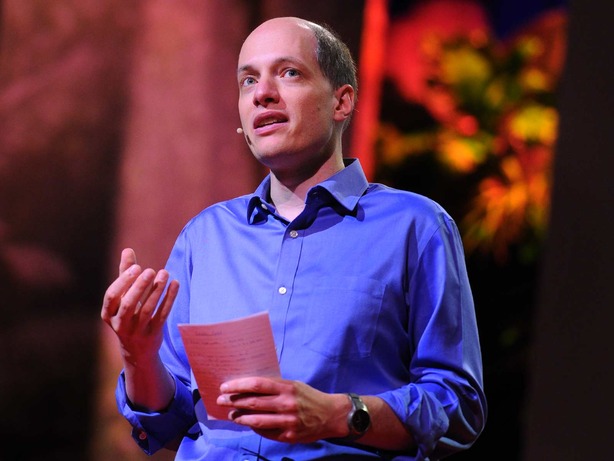One of the most common ways of dividing the world
一个把人类分成两大部分很普遍的方法
is into those who believe and those who don't--into the religious and the atheists.
便是分为相信神的存在的一部分,以及不相信宗教信仰的另一部分--宗教教徒和无神论者
And for the last decade or so,
在最近的十年中
it's been quite clear what being an atheist means.
对无神论者的定义已经是十分清楚的了
There have been some very vocal atheists who've pointed out,
有些直话直说的无神论者,他们说
not just that religion is wrong, but that it's ridiculous.
宗教不仅仅是种欺骗,它还非常荒谬
These people, many of whom have lived in North Oxford, have argued--
说这些话的人很多都住在牛津北部,他们坚持 --
they've argued that believing in God is akin to believing in fairies
他们觉得相信上帝就像相信童话故事
and essentially that the whole thing is a childish game.
所以相信宗教根本就是一件很幼稚的事情
Now I think it's too easy.
我觉得那些定义太简单了

I think it's too easy to dismiss the whole of religion that way.
我觉得以那样的说法去排斥宗教,实在是太肤浅了
And it's as easy as shooting fish in a barrel.
那样的说法不具备说服力
And what I'd like to inaugurate today is a new way of being an atheist --
我想提出一种以无神论者来对待宗教的方式
if you like, a new version of atheism we could call Atheism 2.0.
我把那种方式叫做无神论2.0
Now what is Atheism 2.0?
那什么是无神论2.0呢
Well it starts from a very basic premise: of course, there's no God.
它有个最基本的前提,就是相信上帝是不存在的
Of course, there are no deities or supernatural spirits or angels, etc.
当然也没有神仙或者超自然的力量或者天使等等
Now let's move on; that's not the end of the story, that's the very, very beginning.
这只是最基本的一个开始,现在我们来更深层次地讨论一下












